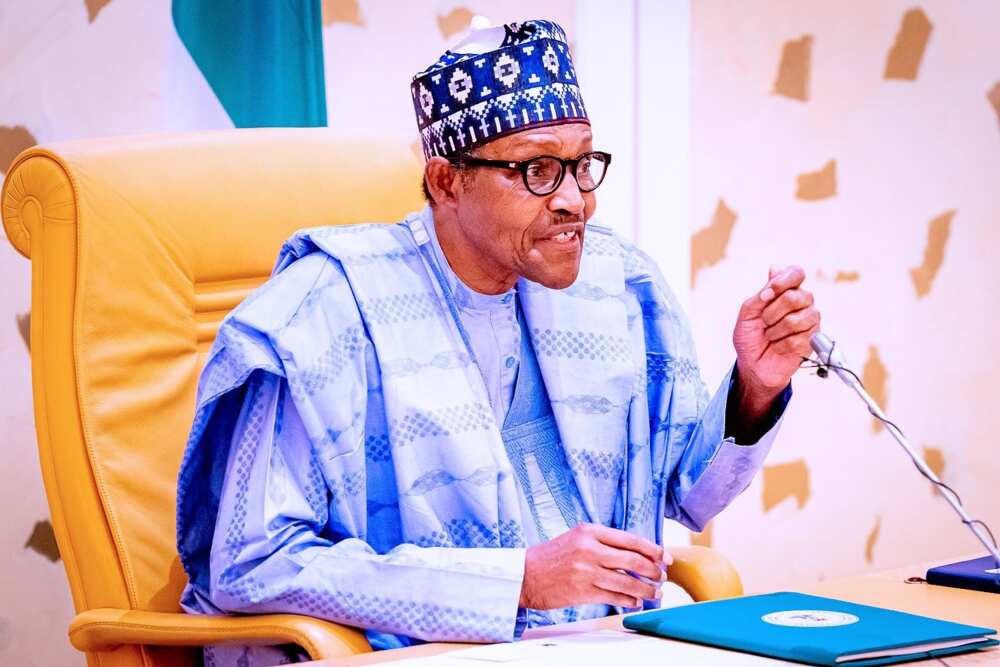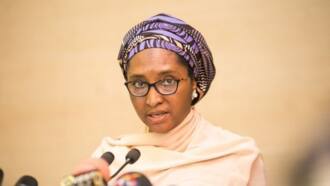N250billion Monthly Payment for Fuel Subsidy Will Cause Economic Calamity for Nigeria, Says CED
- Nigerians have been advised to be in tandem with the policy direction of the federal government in respect of the issue of fuel subsidy removal
- The advice was given by Civil Society Organisations in Nigeria operating under the aegis of Civil Society Coalition for Economic Development
- According to the groups, the continued payment of fuel subsidies by the government will have dire consequences for the Nigerian economy
PAY ATTENTION: Click “See First” under the “Following” tab to see Legit.ng News on your Facebook News Feed!
Lagos - Civil Society Organisations in Nigeria operating under the aegis of Civil Society Coalition for Economic Development (CED) has decried a monthly payment of N250 billion for fuel subsidy by the Nigerian government.
According to the groups, if nothing was done by the federal government to end the fuel subsidy regime, it would further cause economic catastrophe in the country.

Source: Facebook
This CSOs stance was contained in a 7-point communique after their meeting which was held simultaneously in Lagos and Abuja.
A copy of the communique made available to Legit.ng on Friday, December 3, urged the federal government to be committed to the planned ending of the fuel subsidy regime, adding that it was the right step towards recovering the nation's economy.
Do you have a groundbreaking story you would like us to publish? Please reach us through info@corp.legit.ng!
The coalition which comprised of 82 civil society groups insisted that Nigeria's economy is one of the most volatile in the world, recalling that there was a time a barrel of crude oil was sold for $150, but for the past six years, reduced to $60, which it noted was unsustainable.
The communique which was signed by the convener, Comrade Yusuf Dan Maitama, and the secretary, Comrade Badaru Ayewoh further recommended that the fuel subsidy regime should be stopped effective from January 2022.
They further identified the subsidy regime as a major challenge that was forcing the federal government into external borrowings, while expressing optimism that the end of fuel subsidy would recoup funds into the national treasury well enough for developments.
Part of the communique read:
“That the resource persons who are world-class researchers in the oil and gas industry extrapolated issues bordering on Nigeria's oil and gas industry and identified Nigeria's major economic challenges as that of the active fuel subsidy regime.
“That the federal government of Nigeria should end fuel subsidy regime effect from 1st January 2022 in order the save the sum of N250 billion monthly as the economy of Nigeria has become very fragile given the financial burden orchestrated by the subsidy regime.
“That Nigeria is a monolithic economy as such, revenue earnings must be jealously guarded and which should be channeled into road construction, power, education, health and development of its youth.
“That the organised labour should be considerate and not to embark on strike action in the circumstance that the federal government has ended fuel subsidy regime, given the reversal of huge resources back into the Federal government coffers.
“That the federal government and all stakeholders in the oil and gas industry should strictly enforce the provisions of Petroleum Industry Act (PIA), which came into effect after it was signed into law by President Muhammadu Buhari.
“That the federal government, private and public sectors should embark on sensitisation of Nigerians on the need for immediate removal of fuel subsidy in order to save the nation from further financial hemorrhage.
“The federal government of Nigeria should forward the budgetary provision of N5000 grant to citizens to cushion the effect of fuel subsidy removal to the two arms of the National Assembly for legislative debate before the passage of 2022 budget.
“The Civil Society Coalition commends the Group Managing Director of Nigeria National Petroleum Corporation (NNPC) Limited for his commitment to the stability of oil and gas industry in Nigeria.”
Coalition declares support for fuel subsidy removal by Buhari’s govt
Similarly, the forum of Civil Society Organisations in Nigeria made up of over 100 community-based organisations, and grassroots-oriented institutions on Thursday, December 2 backed the federal government's plan for fuel subsidy removal.
The groups resolved to comprehensively and compositely support the Buhari administration on the move, adding that the policy will take Nigeria to the realm of fulfilled potentialities.
A communique released after the meeting signed by Comrade Friday Maduka, chairman, Forum of Civil Society Organisations of Nigeria, noted that the government will be financially healthy after doing away with fuel subsidy payment.
NNPC contracts Innoson to provide buses for Nigerians
Meanwhile, the NNPC has contracted Innoson Vehicle Motors (IVM) to produce Condensed Natural Gas (CNG) city buses to cushion the effects of fuel subsidy removal next year.
The chairman of Innoson Group, Chief Innocent Chukwuma, revealed this to journalists recently in Nnewi, Anambra state.
The Nigerian government had unveiled plans to sponsor the conversion of one million cars to run on gas with Kyari announcing in December 2020 that the ministry of petroleum will provide the structure for the free conversion services to enable automobiles to switch from fuel to gas.
Source: Legit.ng




